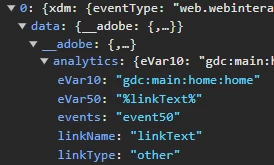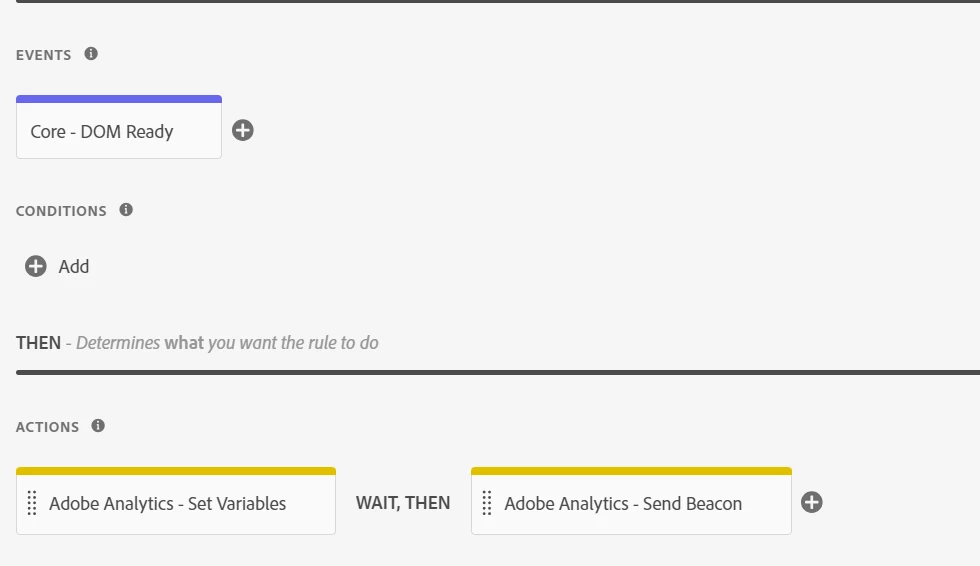Using _satellite.getVar() value in variable editor of AEP Web SDK Update variable Type
Hi Team,
I have created a data element using _satellite.setVar("linkText","clickText") in the custom code of the rule.
Then I am using percent (%) syntax reference this in AEP web SDK update variable type as shown below in eVar50

When I check the value in network call I am seeing it as %linkText%

Can you please guide how we can get the actual value of this data element if I need to update it in the UI.
As per the document https://experienceleague.adobe.com/en/docs/experience-platform/tags/client-side/satellite-object we should be able to reference _satellite.getVar() in percent(%) syntax under UI.




